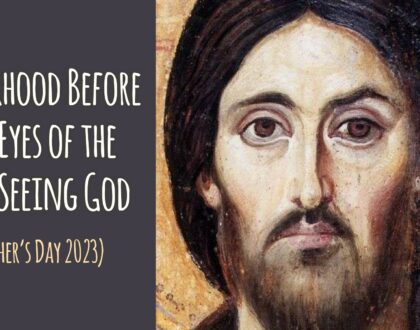Jesus, the God of the Living, the Dead, and the Living Dead (John 5.21-26)

by Pastor Gene
John 5:27-29
5:27“And he has given him authority to execute judgment, because he is the Son of Man. 28 Do not marvel at this, for an hour is coming when all who are in the tombs will hear his voice 29 and come out, those who have done good to the resurrection of life, and those who have done evil to the resurrection of judgment.”
Questions to consider about John 5:27-29:
- In 3:27, why do you think Jesus shifts from referring to Himself as “the Son of God’ or “the Son” (5:25, 26) to “a son of man”?
- The ESV translates 5:27 “the Son of Man’ but the underlying Greek text reads “a son of man” – there’s no ‘the’ in the original; it’s added. How might this alter John’s intended meaning? What does Jesus mean by saying the Judge of all the earth will be ‘a son of man’? Do we find this “son of man” in the Old Testament?
- What does the phrase ‘son of man’ even mean? Consider how it is used in Matthew 16:13-17 [there, with the “the”].
- What does Jesus say about THE Son of Man? What does He have the authority to do? (Mark 2:10, 2:28; Lk 19:10; John 3:13, 8:28.)
- How do 5:25 and 5:27 taken together reveal Jesus as the “Alpha and the Omega, the first and the last, the beginning and the end” (Revelation 22:13).
- In 5:28-29a, Jesus promised that “all who are in the tombs will hear his voice and come out.” Where have we heard about that ‘voice’ before’?
- In 5:29, Jesus describes a judgment by works (“… those who have done good … those who have done evil”). And that’s not the only time we read this in the NT! Consider: Matthew 16:27 & 17:21, Romans 2:3-11, 2 Corinthians 5:10, and Revelation 20:11-15. How does a ‘judgement according to works line up with a ‘salvation by grace through faith, apart from works’ (Romans 3:28)? Consider James 2:14-17 and Matthew 6:17-20.
- In light of these things, what might it mean to “work out your own salvation with fear and trembling, for it is God who works in you, both to will and to work for His good pleasure” (Phil. 2:12-13)?
- What great ‘surprise’ does Matthew 17:21-23 indicate “many” will experience on the Day of Judgement? How do modern methods of evangelism contribute to this number?
Recommended Posts

Reflection Questions: Fatherhood Before the Eyes of the All-Seeing God (Father’s Day 2024)
June 16, 2024


